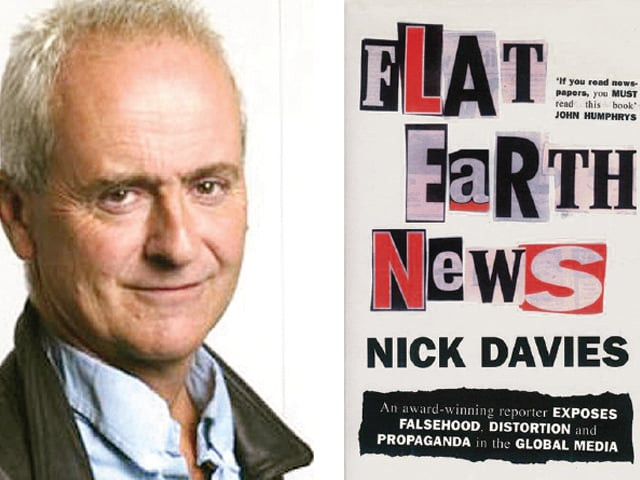The rise of ‘churnalism’
Flat Earth News is one book newspaper owners wish was never published.

In a recent discussion I had with some colleagues, a senior journalist said journalism was all about the numbers now, and all that mattered were the number of copies of a newspaper sold, or the ratings a television channel got. I disagreed, and he told me to go read Flat Earth News. I’m glad I did.
Focusing mostly on news-gathering, Davies paints a portrait of an industry that is institutionally geared towards making the seeking-out of real news very difficult.
In the “news factory”, as he calls it, reporters are tied to their desks by poor budgets and time constraints. He says they are forced by circumstances to rely on “the suppliers” for their leads, recycling information placed in the public domain by others and producing not journalism but “churnalism”.
More generally, Davies goes to great lengths to emphasise that it is journalists themselves who are the primary victims of the changes he documents. He suggests the problem with the media is that the industry prioritises corporate needs rather than public duty.
But a more disturbing aspect that he highlights is how skilled PR companies are able to get their agenda through, by cleverly feeding newspapers information.
As he mentions in the chapter `The Private Life of Public Relations’, PR firms inject falsehoods into the British media so surreptitiously that weekly columnists are completely oblivious to their true intentions. For instance, he cites the case of Daily Mail columnist Melanie Phillips who wrote “a series of outspoken columns denouncing the whole concept of man-made climate change”. Davies goes on to mention one of her articles in the Mail in February 2002 which said “the latest evidence is provided in a report published today by the European Science and Environmental Forum, in which a group of the most eminent scientists from Britain and America shed light on the theory.” Fair play to Phillips for doing her research, but was it researched enough? Davis gives us the pleasure of looking deeper into the roots of the story and writes “the forum whose work she {Phillips} was quoting was, in truth, yet another pseudo-group, created with the help of two PR agencies (APCO Worldwide and Burson-Marsteller) with the specific intent of campaigning against restrictions on corporate activity.” He also mentions how the report “Phillips referred to in such glowing terms was recycled work which had been funded by Exxon.”
This is one of the many examples he quotes, and not just from the tabloid press. It is both illuminating and depressing to realise that even the most trusted names in journalism have become victim, like so much of our media, to the forces of money-making, fast-turnaround and nonsense PR.
The book is not perfect. Davies begins with that “defining value of honesty”. He despises the facile cop-out of “un-named sources”. But turn a few chapters and you find that he scatters page after page with quotes from anonymous persons criticising their bosses.
But I would still recommend Flat Earth News to aspiring journalists, and even to those well entrenched in the profession. It is an eye-opener. But this book is also a startling education for anyone who reads or watches news, and wonders if its really news that’s being produced or just noise.
Five other must-reads about journalism:
1. Losing the News by Alex Jones
2. The Political Economy of Media by Robert McChesney
3. We the Media by Dan Gillmor
4. The Vanishing Newspaper by Philip Meyer
5. Compassion Fatigue: How the Media Sells Disease, Famine, War and Death by Susan D Moeller
Published in The Express Tribune, Sunday Magazine, January 23rd, 2011.



















COMMENTS
Comments are moderated and generally will be posted if they are on-topic and not abusive.
For more information, please see our Comments FAQ